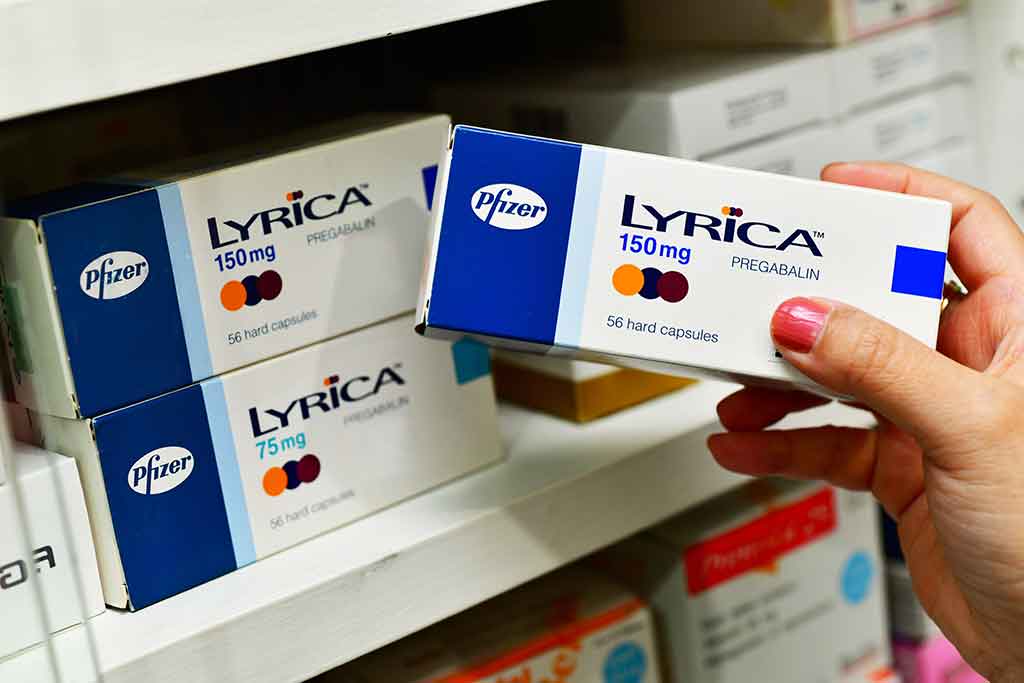So Many B Vitamins: What’s the Difference?
B vitamins are well-known for not just being an important part of a well-balanced diet, but also for being vital when it comes to maintaining a healthy nervous system. We’ll break down each different type of B vitamin, and how they help your nerves regenerate and stay in shape.
Everyone knows that vitamins are an important part of a well-balanced diet. For many of us, though, the real question comes down to which ones. There are a ton of different letter-named vitamins to keep track of, and often many different varieties of each one of those, to boot. It can all get a little dizzying.
But here’s the kicker — vitamins are very important to your body’s ability to function in a healthy and efficient way. Of course, with a well-balanced diet, you should be getting all the vitamins you need. But who among us makes sure to maintain a truly balanced diet, at all times?
Hey, no judgment here! Plenty of us wind up supplementing our diets with vitamins and minerals that we might not be getting enough of on a daily basis…and these supplements can be extra important for those of us with peripheral neuropathy.
B Vitamins: Good for You in More Ways Than One
When you’re working to regenerate nerves that have been damaged by the effects of peripheral neuropathy, the B vitamin family is one of the most important groups of vitamins to think about. Many of the B vitamins have a direct relationship with the formation, function, and healthy maintenance of your nervous system. Sometimes, we actually develop peripheral neuropathy because we aren’t getting enough of a specific B vitamin in our diets. If neuropathy has already started to set in, adding B vitamin supplements to your normal diet may push back its damaging effects, and even begin to actively help your body to heal its ravaged nerve endings.
Part of the reason it helps to supplement your B vitamin intake is that these compounds tend to be water-soluble. This means that they get flushed out of your system on a very regular basis. Because of this, your body has to rely on your dietary intake to make sure that it has enough B vitamins to keep functioning in a healthy way.
We’ll talk about the eight different types of B vitamins, and how each one of them interacts with your body. More specifically, we’ll talk a bit about B vitamins for nerve pain and nerve regeneration. If you notice that you aren’t getting enough of any of these B vitamins, a dietary supplement might be a good idea. Similarly, dealing with peripheral neuropathy might be a good reason to boost the levels of B vitamins in your system.
It’s important, though, to avoid overconsumption of these vitamins. Too much of almost literally anything can turn into a bad thing, and B vitamins certainly have levels at which they cause toxicity within your body and can then have the opposite effect you want. You must be sure that you’re not overdoing it, because B vitamin toxicity can lead to serious problems, including nerve damage.
The best way to avoid B vitamin toxicity is to get them from whole foods, rather than supplements. However, some people with compromised gut health will have a difficult time absorbing the vitamins they need and may need to do some supplementing.
Vitamin B1 (aka Thiamine)
Thiamine is one of the more important compounds found in the human body, and as such, you’ve probably at least heard its name before. In short, thiamine helps your body convert food to energy. It’s also vital to muscle contraction, in addition to being a very big supporter of proper nervous system function, in general.
You can probably see why thiamine is a pretty important part of keeping your body functional and healthy. It helps with some stuff that you really can’t do without.
In fact, thiamine deficiency is commonly responsible for one of the most telltale signs that peripheral neuropathy has begun to take hold — numbness and loss of sensation in the hands and feet. Neuropathy is length-based when it comes to how it presents its symptoms. The parts of your body that are farthest away from your central nerve bodies (which live closer to the spine and brain) are going to get damaged first, as they’re tougher to reach with healing compounds that keep them healthy (like thiamine, specifically).
When an insufficient amount of thiamine is present in the body, it contributes to the damage and eventual death of your nerve endings…starting in the hands and feet. Thiamine deficiency causes a condition known as endemic neuritis, that eventually blooms into full-blown peripheral neuropathy if it’s not addressed quickly enough.
Find It In: Spinach, Beans, Whole Grains, Kale, Nuts, Seeds, Pork, Red Meat
Vitamin B2 (aka Riboflavin)
Riboflavin is another big one for your body, being that it’s instrumental in the process of breaking down things like carbs, fats, and proteins. In other words, riboflavin is super important to the metabolic and digestive work your body does. If your body finds itself without the necessary amount of vitamin B2, problems can set in — many of which are related to toxicity-induced neuropathy.
Another important bodily function that riboflavin helps out with in a very significant way is red blood cell production. Now, you’re probably already familiar with the fact that red blood cells are super important to your body and your immune system. What you might not have realized, though, is that they’re also very specifically important for maintaining healthy nerves that function well.
Your red blood cells form the primary delivery system for the nutrients and healing compounds that your central nerve bodies send out to your nerve endings regularly, keeping them healthy as their continual use results in the production of waste products (in addition to general wear and tear). When the production of red blood cells is impaired by something like a deficiency in riboflavin, your nerves can wind up going without those nerve regeneration compounds, eventually dying off as a result.
Find It In: Almonds, Eggs, Brussels Sprouts, Rice, Beef, Salmon, Broccoli
Vitamin B3 (aka Niacin or Niacinamide)
Niacin is a particularly versatile member of the B vitamin family, as it helps out with a lot of important functions. In addition to working to help the digestive system do its thing, it’s also a key player in your skin’s health and greatly assists with the maintenance of proper nerve functionality by helping to maintain your cellular energy levels.
On top of all this? Niacin is a big booster of HDL cholesterol, that “good” cholesterol you’re always hearing about.
Niacin is found in many healthy foods — specifically beef and fish, poultry, legumes and nuts, eggs, and greens. Focusing on working more of these foods into your diet can help boost niacin levels if you think a deficiency might be contributing to the onset of peripheral neuropathy.
Find It In: Beef, Leafy Greens, Beans, Eggs, Nuts, Legumes
Vitamin B5 (aka Pantothenic Acid)
Vitamin B5’s widely varied usefulness is right there in its name, believe it or not! “Pantothenic” comes to us from the Greek word pantothen, which means “coming from everywhere.” And the boot fits: Vitamin B5 is found in just about every food group, more or less, so making sure to maintain a balanced diet is an easy way to make sure you’re getting enough of that pantothenic acid.
In terms of its role, pantothenic acid mostly supports hormone production, which is essential for growth and body development. It also helps the body break down fats and carbs, which translates, in layman’s terms to “it helps turn food into energy.”
Find It In: Pretty much every food group!
Vitamin B6 (aka Pyridoxine)
When it comes to nerve function, your body relies on a series of compounds known as neurotransmitters. These are some impressive parts of your body, as they basically change from their chemical forms into electrical signals, and then back again. This is the basis for nerve communication in a nutshell. Pyridoxine is essential for the synthesis of these neurotransmitters — and without them, your nerves can’t do their job (it would be like trying to play catch with two gloves, but no baseball).
Not only does pyridoxine help to make those important neurotransmitters, but it also helps build new red blood cells, which we just talked about as being important when it comes to keeping your nerves healthy.
And it doesn’t stop there. Pyridoxine is a powerful compound, as it also helps to regulate your mood and sleep patterns. Neurotransmitters like serotonin, melatonin, and norepinephrine are essential when it comes to helping to regulate your moods and mental state, as well as making sure your body gets tired and hungry at the appropriate parts of your day (these are known as your circadian rhythms). As you can see, there are many reasons it’s smart to make sure you’re getting enough B6 in your diet.
Find It In: Brown Rice, Sunflower Seeds, Spinach, Carrots, Peaches, Berries, Eggs, Fish, Bananas
Vitamin B7 (aka Biotin)
Commonly referred to as the “beauty vitamin,” B7 is beneficial to the health of your hair, skin, and fingernails. Primarily, biotin helps us use fats, amino acids, and carbs in our bodies — all of which are things that not only make important contributions to your metabolism but are also important when it comes to maintaining your nerve health.
B7 deficiency can lead to problems like brittle skin and fingernails…and if it gets bad enough, it can directly contribute to peripheral nerve damage by causing elevated blood sugar levels. Elevated blood sugar levels lead to a damaging environment that kills off nerve endings, which is why diabetes and peripheral neuropathy are so commonly linked. Maintaining the right amount of biotin in your diet is a great way to not only keep your hair and nails looking healthy but to avoid the potential for nerve damage as well.
Find It In: Strawberries, Yeast, Pork, Chicken, Cauliflower, Egg Yolks, Nuts
Vitamin B9 (aka Folate)
You might know this one as folate, and it’s a very important compound when it comes your body’s ability to function normally. Your body uses folate to assist in some of its most fundamentally vital operations — things like the production of DNA and RNA, and the metabolism of amino acids (a requirement, basically, for your cells to continue dividing and functioning the way they’re supposed to). As such, folate deficiency can be a pretty big problem.
Insufficient folate can cause things like anemia, which lowers the number of red blood cells your body produces, eventually increasing the toxicity your nerve endings experience, and potentially leading to neuropathy down the line.
Find It In: Darker Leafy Greens, Organ Meats, Beets, Dates, Avocado, Beans, Salmon
Vitamin B12 (aka Cobalamin)
A consummate team player, Vitamin B12 works in conjunction with other B-vitamin compounds. Primarily, B12 helps with the production of hemoglobin in blood.
Even more specific to our area of concern, though, is the role that B12 plays in the production of myelin. This word probably sounds a bit familiar to you, as the myelin sheath is an incredibly important part of your nervous system’s anatomy. Larger nerve fibers are covered with a protective coating made of fats and proteins called the myelin sheath — when it fails, the nerve fibers underneath become damaged.
Understandably enough, then, serious B12 deficiency can have a very critical impact on the nervous system and can be a root cause of peripheral neuropathy.
Avoiding B12 deficiency isn’t too hard, as it’s present in almost all meat-based foods. Since it doesn’t occur naturally in plant-based foods, however, vegetarians and vegans are at a heightened risk of B12 deficiency (and are recommended to make up for this with supplements).
Find It In: Meats. This one doesn’t naturally occur in plant foods.
Vitamins Are Vital for Healthy Nerves
Remember, too much of any good thing becomes a bad thing. Vitamin B toxicity can be a very real thing, so it’s important to keep in mind that there is certainly such a thing as overdoing it.
In the proper amounts, B vitamins contribute to a healthy and normally functioning nervous system in more ways than just one. Knowing the difference between each type can help you stay informed and be sure that you’re getting the right amount of nutrients your nerves need to be healthy.
Gabapentin Joins the Opioid Crisis

Gabapentin and similar gabapentinoids, like Lyrica, have now come to play a crucial part in…
Celiac Disease and the Neuropathy Connection: What You Need to Know

Notice that you get headaches more often than usual? Feel tired even though you sleep…
Up to Half of Pain Sufferers Experience Depression or Anxiety: Is this you?

You wake up every morning with pain, and you go to bed feeling the same…
66% of Chronic Drinkers Have Alcoholic Neuropathy

Chronic alcohol consumption is a contributing factor in a high number of peripheral neuropathy cases.…